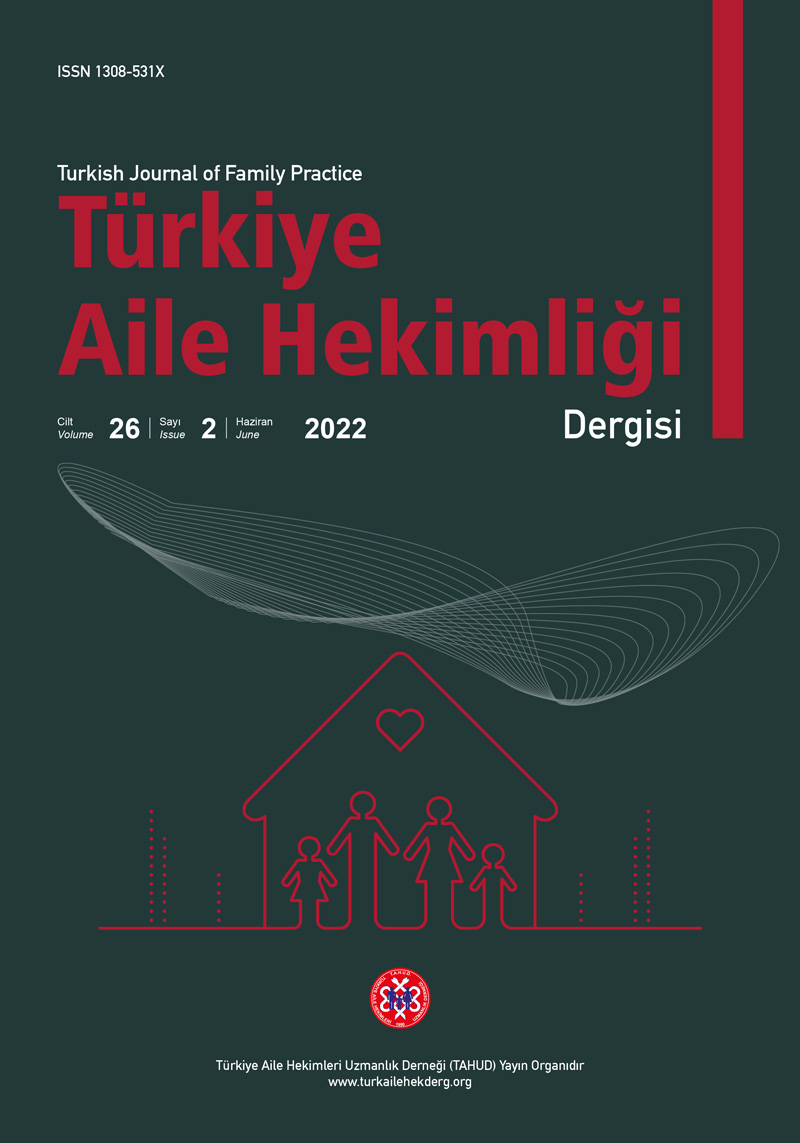Abstract
Aim: Spiritual leadership is a leadership model which aims to improve productivity by meeting the spiritual needs of workers that both strengthen the connection with the other workers and the organization that the workers are the part of it. On the other hand, burnout syndrome is a concept which occurs especially in people who work face to face with other people that causes a decrease in both productivity and service quality. In the research, it is aimed to evaluate the relation comparatively between the terms spiritual leadership and burnout syndrome among the residents in the internal and surgical sciences.
Material and Method: 206 medical residents who work at the training and research hospital between the dates 10.01.2020 and 12.01.2020 were voluntarily included in the study. Our study is a prospective, cross-sectional survey study. A participant information form consists of 12 questions, Spiritual Leadership Measurement Tool (SLMT) which consists of 21 questions, Maslach Burnout Index (MBI) consists of 3 subscales and 22 questions. IBM SPSS Statistics 21.0 program was used for statistical analysis and calculations. Statistical significance level was accepted as p<0,05.
Results: 60,2% of the individuals who attended to the research are women, while 39,8% are men. The age average is 28,07±1,86. When the main branch distribution is considered, 53.4% are interior sciences while 46,6% are surgical sciences. The mean SLMT score was 55,43±16,62, MBI’s mean emotional exhaustion score was 22,76±6,99, depersonalization score was 9,81±3,56, and personal accomplishment was 18,81±4,16. Personal accomplishment scores were found to be significantly higher in surgical sciences than in internal sciences. In the study, a negative correlation was detected between SLMT and MBI emotional exhaustion and depersonalization scale, and a positive correlation with the personal accomplishment scale.
Conclusion: Due to the obtained data, it is determined that with the actualization of spiritual leadership model the level of burnout syndrome can be reduced. Hence; It may be appropriate to provide training on spiritual leadership and burnout syndrome to all employees working in health institutions, and especially for managers in institutions to adopt the spiritual leadership model.
Keywords: Leadership, burnout, medicine, residency
Copyright and license
Copyright © 2022 The Author(s). This is an open access article distributed under the Creative Commons Attribution License (CC BY), which permits unrestricted use, distribution, and reproduction in any medium or format, provided the original work is properly cited.










